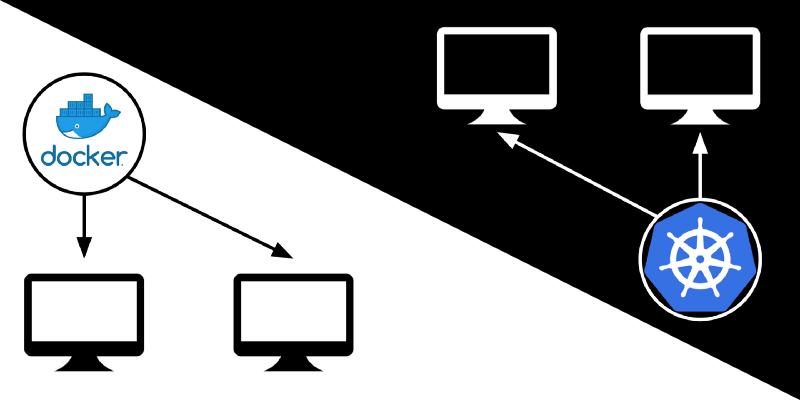
- #How do docker and kubernetes work together portable#
- #How do docker and kubernetes work together software#
- #How do docker and kubernetes work together plus#

Once the containers are built and ready to run everywhere, developers can store or share the container image through containers registries.
#How do docker and kubernetes work together portable#
In turn, the Docker image is a portable static component that can be run on the Docker Engine. To run a Docker container, one can choose to start with the Docker file, which is a file that explicitly establishes everything required to run the Docker image (e.g., the OS network specifications and file locations). One of the primary tools is the Docker Engine, a runtime environment that enables developers to create and run containers on any development machine. Yet, it does not mean that all their tools are the main go-to solution, considering the heavy competition and quality technologies developed in the field. Further, throughout the years, Docker has developed numerous tools to provide a "fully equipped" platform for everything related to containerization. It can run virtually anywhere from desktops to cloud environments and data centers. What is Docker?ĭocker is a widely known containerization platform used to develop, ship, and run any application as a portable and self-sufficient container. Still, Docker quickly claimed the throne as the number one, becoming the default container format. In fact, before 2013, Linux was already providing container technologies (Linux Containers or LXC). Still, it arose with the initial release of Docker in 2013 as an open-source technology, which still holds a clear advantage in the containerization market, having 82.39% of its share. The concept of containerization itself is not recent. Compared to Q2 2019, there has been, on average, an increase of 10 percentage points (pp) in the use of containers." (State of Cloud Native Development, 2020) " The report found that 60% of backend developers around the world are now using containers. Not everyone uses containers, but the numbers have shown notorious growth throughout the years. In short, thanks to containers, applications can become encapsulated in independent environments, and the primary benefits are: scalability, quicker deployment, and closer congruity between environments.
#How do docker and kubernetes work together software#
This was a major issue that containers provide a solution to since they abstract the software code away from the host operating system, making it independent and able to quickly run anywhere without worrying about bugs or other issues. When they wished to transfer it to a new location (for instance, from Linux to Windows), the code would be highly prone to bugs and other errors.

intense UI applications virtualization are rather done at another layer of the hypervisor with Vagrant and others.īefore containers, developers used to create code in a particular computing environment. However, keep in mind that not all software code can be designed in a microservices architecture.

Hence, any software or application within a container can be easily moved and used in distinct infrastructures, regardless of the infrastructure's operating system or environment.Ĭontainers allow software code to be more portable (can easily be moved across platforms and infrastructures) and secure, considering it allows developers to build and deploy applications that are consistent across different operating systems. Summing up the difference between Docker vs Kubernetes What is containerization?Ĭontainerization enables developers to package software code and its required components to run (e.g., frameworks, libraries, and other dependencies) in a single isolated container.
#How do docker and kubernetes work together plus#
Table of Contentsĭocker vs Kubernetes? It should be Docker Plus Kubernetes Further, we also explain the benefits of containerization and orchestration technologies. This article explains what containerization is and how Docker and Kubernetes can complement each other. Facebook Linkedinĭocker and Kubernetes are two of the primary technologies in the world of containerization, but are they competing for the same goal? Not really.


 0 kommentar(er)
0 kommentar(er)
